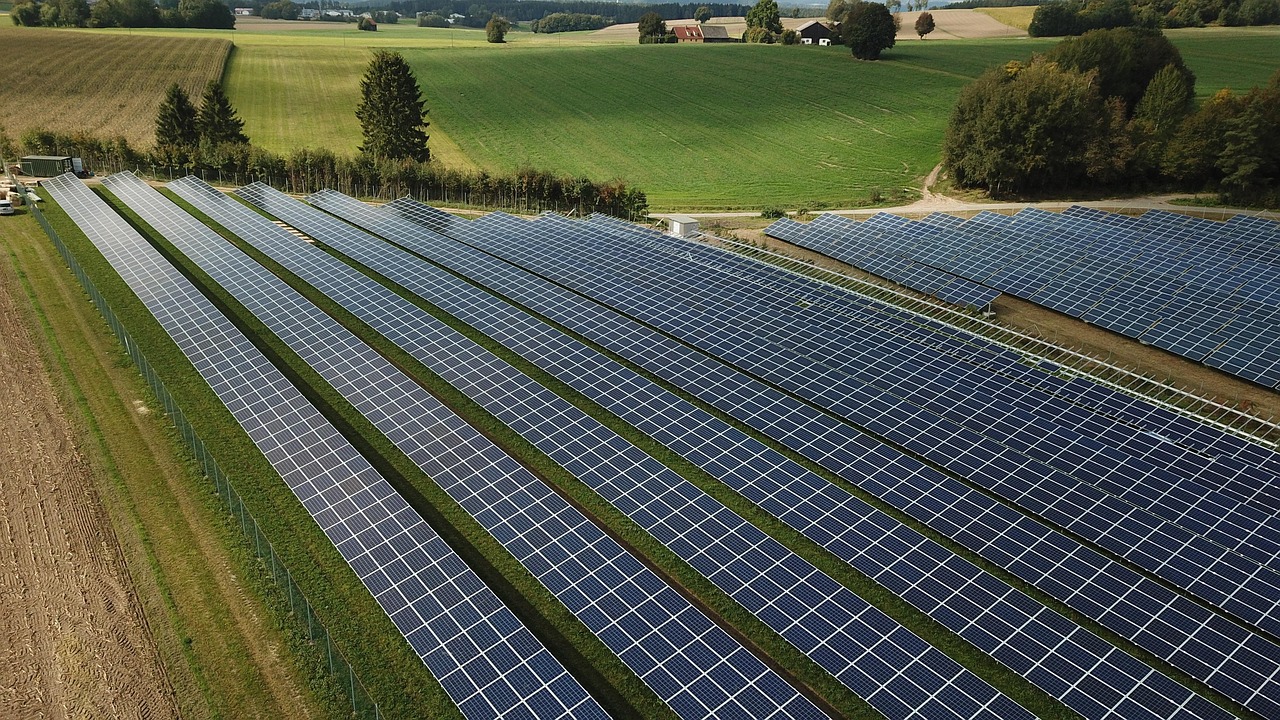China’s Kibing Group, a leading global glass and solar materials manufacturer, has unveiled plans to establish a large-scale solar glass production facility in Algeria. The proposed project, known as the Algeria Solar Glass Project, is part of the North African nation’s broader push towards renewable energy, industrial diversification, and regional leadership in solar infrastructure. The facility, complemented by a silica sand unit, aims to produce 1.53 million tons of solar glass annually, positioning Algeria as a key player in the MENA region’s renewable energy sector.
Strategic Context: Algeria’s Renewable Energy Ambitions
Algeria has long relied on hydrocarbons as the backbone of its economy. However, over the past decade, the government has intensified efforts to diversify its energy portfolio and embrace renewable sources. With the Algerian Renewable Energy and Energy Efficiency Program, the country aims to achieve 15,000 MW of renewable energy capacity by 2035, with a significant portion coming from solar PV projects.
The Kibing project aligns directly with these ambitions. By establishing a domestic solar glass manufacturing capability, Algeria can reduce reliance on imports, lower production costs for solar projects, and accelerate the rollout of solar farms across the country. Moreover, the integration of a silica sand processing unit ensures that local resources are effectively utilized, creating a more self-sufficient industrial ecosystem.
Algeria’s government has increasingly emphasized the importance of local content and industrialization in its energy projects. Policies now require foreign investors to maximize local participation in manufacturing, assembly, and logistics, creating a pathway for knowledge transfer and domestic industrial capacity building. The Kibing project exemplifies this approach, combining foreign expertise with domestic resource utilization.
Project Overview: Production and Industrial Impact
The Algeria Solar Glass Project is set to be one of the largest of its kind in Africa. Beyond the 1.53 million-ton solar glass capacity, the associated silica sand unit will process 1.08 million tons annually, providing high-quality raw materials necessary for photovoltaic glass production. This vertical integration will allow Algeria to control the supply chain from raw material extraction to final product manufacturing, a critical factor for cost-efficiency and long-term sustainability.
The project is expected to create approximately 3,000 direct jobs, spanning roles in engineering, manufacturing, logistics, and research and development. Indirectly, it will stimulate employment in ancillary industries such as transportation, maintenance, and services, contributing to industrial diversification and socio-economic development in the host region.
A key focus of the project is local integration. Algeria has committed to ensuring that at least 90% of the supply chain, services, and labor are sourced domestically, strengthening local expertise and knowledge transfer while fostering new industrial capabilities.
China’s Role in Algeria’s Solar Sector
The Kibing Group’s investment is part of China’s growing footprint in North Africa’s renewable energy sector. Over the past five years, Chinese firms have increasingly partnered with regional governments to develop solar projects, wind farms, and critical infrastructure, leveraging both technological expertise and financing capacity.
In Algeria, this initiative reflects a broader strategic partnership between China and the country, supporting the Belt and Road Initiative while providing Algeria with access to advanced solar manufacturing technologies. Kibing’s approach building local production capability rather than solely exporting finished glass signals a long-term commitment to the region and enhances Algeria’s autonomy in renewable energy development.
China’s involvement also reflects its global strategy to export clean technology expertise, reduce global supply chain risks, and secure strategic resource partnerships. By investing in local manufacturing facilities, China helps Algeria meet domestic demand while simultaneously creating opportunities for regional export markets.
Regional Implications and Market Opportunities
The MENA region is experiencing a solar boom, driven by abundant sunlight, declining solar panel costs, and growing energy demand. Algeria’s solar ambitions, supported by domestic production facilities, could make it a regional supplier of solar glass and components, not only for domestic projects but also for neighboring countries in North Africa and the Middle East.
The establishment of a large-scale solar glass facility is expected to boost Algeria’s competitiveness in solar energy auctions and power purchase agreements (PPAs), enabling the country to deploy solar projects at lower costs compared to relying on imported materials. Furthermore, this could encourage foreign direct investment in downstream solar projects, including PV module assembly and complete solar farm development.
With neighboring countries like Morocco, Tunisia, and Egypt rapidly expanding their solar capacity, Algeria’s domestic production will not only meet local demand but could also position the country as a regional manufacturing hub, strengthening trade and collaboration in clean energy technologies.
Economic, Social, and Industrial Impact
Beyond energy infrastructure, the project carries significant economic and social benefits. Job creation will provide employment opportunities in both urban and rural areas, while knowledge transfer from Chinese engineers to Algerian workers will build local industrial expertise. The project may also stimulate the development of local suppliers and service providers, from equipment maintenance to logistics and materials processing.
The export potential of solar glass adds another layer of economic impact. Algeria could position itself as a regional hub for renewable energy manufacturing, exporting high-quality solar glass to North Africa, the Middle East, and parts of Europe, contributing to foreign exchange earnings and long-term industrial resilience.
Furthermore, by strengthening the domestic solar industry, Algeria can foster research and development initiatives, encouraging universities and technical institutions to collaborate on innovations in PV glass quality, energy efficiency, and sustainable production techniques. This could lay the foundation for a long-term green technology ecosystem in the country.
Environmental and Energy Benefits
The project aligns with global efforts to combat climate change. By supporting domestic solar energy production, Algeria can reduce reliance on fossil fuels, lower carbon emissions, and advance toward its renewable energy targets. Additionally, producing solar glass locally reduces the environmental footprint associated with importing heavy materials, including transportation emissions.
Solar energy adoption also has socio-environmental benefits, such as improved air quality, energy security, and reduced water consumption compared to conventional fossil fuel power plants. With Kibing’s project, Algeria can accelerate its transition to a low-carbon economy, supporting both national and regional climate goals.
Potential Challenges and Risk Factors
While the project is promising, several challenges could affect its success. Infrastructure gaps, including port capacity, electricity reliability, and logistics networks, must be addressed to ensure smooth production and distribution. Regulatory approvals, environmental compliance, and bureaucratic procedures may also delay project timelines.
Global market volatility in solar materials, fluctuations in energy prices, and competition from established manufacturers in China, India, and Europe could impact the facility’s profitability. Additionally, the project’s success depends on the development of domestic and regional demand for solar projects, which requires continued government support, favorable policies, and financing mechanisms.
Next Steps
Discussions between Kibing Group and Algerian authorities are ongoing. Joint working groups have been established to finalize technical feasibility, financing arrangements, and phased implementation. Construction is expected to begin within 24 months, contingent on completing preparatory assessments, environmental impact studies, and securing local partnerships.
Once operational, the facility will serve as a cornerstone of Algeria’s renewable energy industrial strategy, potentially inspiring additional foreign investments in solar PV, battery storage, and clean technology projects across North Africa.
Broader Geopolitical Significance
Kibing Group’s investment also reflects broader geopolitical dynamics. China’s expanding footprint in North Africa through renewable energy and industrial projects strengthens its influence in the region, complements Belt and Road partnerships, and provides Algeria with alternative sources of technology and financing beyond Europe and the United States.
By fostering industrial collaboration, Algeria can balance foreign investment, leverage advanced technology, and assert itself as a regional leader in clean energy. Simultaneously, Chinese investments help secure long-term economic ties while promoting sustainable industrial development.
China’s Kibing Group’s proposed solar glass plant represents a strategic milestone in Algeria’s renewable energy journey. By combining domestic resources with foreign expertise and capital, Algeria is positioning itself as a regional hub for solar technology.
The project not only advances renewable energy adoption but also stimulates industrial diversification, job creation, environmental benefits, and technological transfer. If successfully implemented, it could serve as a model for other African nations seeking to leverage natural resources, international partnerships, and industrial policy to accelerate the energy transition.
Algeria’s solar ambitions, combined with investments like Kibing’s, highlight the growing role of China-North Africa cooperation in building sustainable infrastructure, shaping the regional energy market, and fostering long-term economic development.







